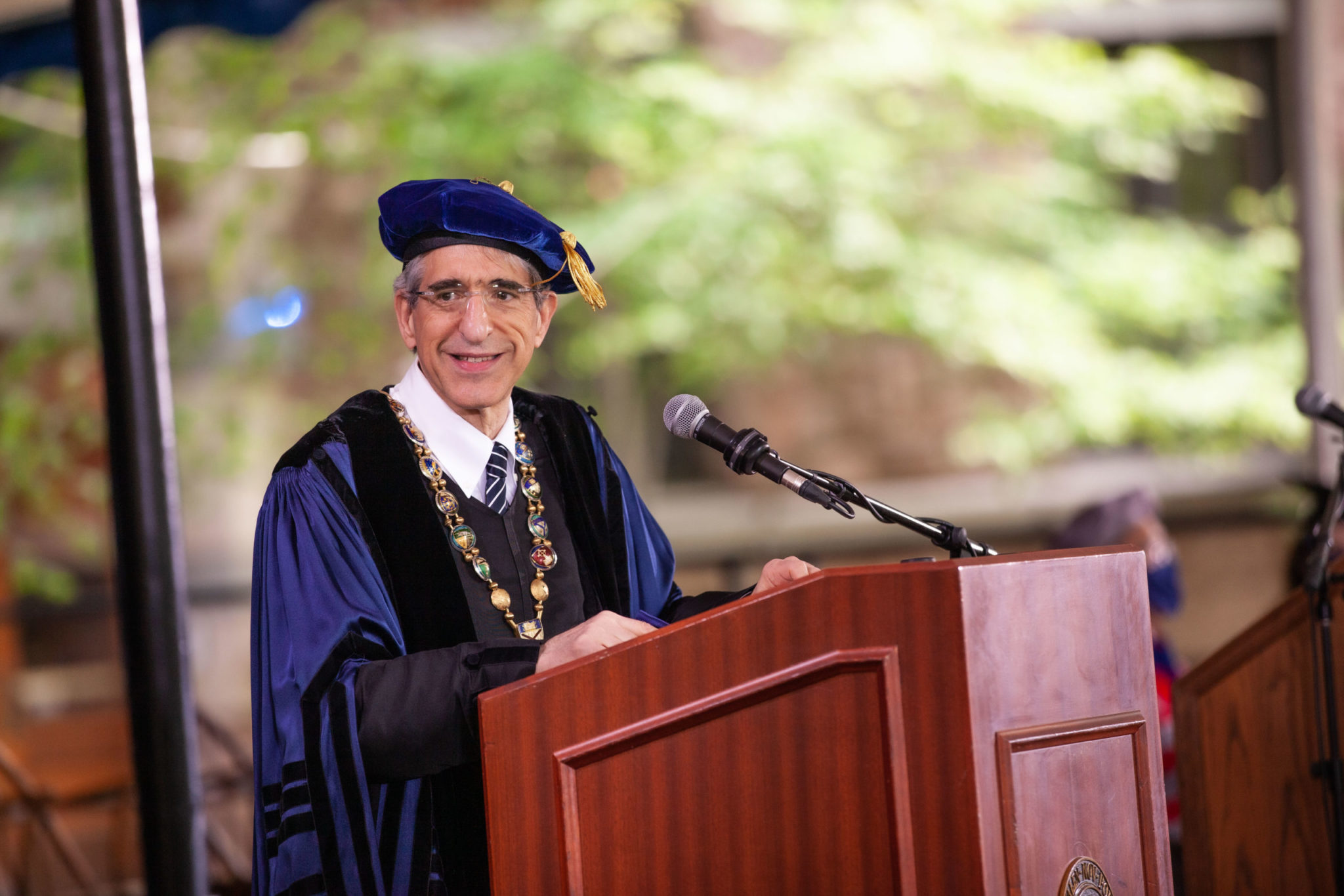
Courtesy of OPAC/Dan Renzetti
This has been an incredibly challenging year. It sometimes has felt as if everything we know about life at Yale — and life in general — has been upended. In the shadow of a global pandemic, daily interactions and milestone events have all been transformed. Our comforting rhythms have been replaced with new ones — testing, masks, distancing and more.
As Yalies, you are probably used to measuring your days, your years, even your lives in terms of “achievement.” You know how to set ambitious goals and then work hard to realize them. But the past year has thrown up roadblocks; the pandemic has derailed the best-laid plans. We could only plan on uncertainty and change.
And yet we are now approaching commencement — a season of celebration and gratitude. So, this year, on top of all your “normal” achievements, we also celebrate your resilience, your creativity and your imagination. We express thanks for your sacrifices and your hard work. And we recognize the extraordinary challenges you have tackled during this difficult time.
Your experiences — your achievements — remind us that change is hard, but it is possible. Rear Admiral Grace Hopper GRD ’34 — a visionary computer scientist, dedicated public servant and namesake of one of Yale’s residential colleges — liked to say, “Humans are allergic to change.” But Hopper, a lifelong innovator, never shied away from challenges; she ran toward them. The record of her achievements reminds us that embracing change can yield tremendous rewards.
You, too, have shown us what can be achieved under difficult circumstances. Who knew that we could create art, dance, sing and perform remotely? How many people anticipated that service and social engagement would carry on via Zoom? You have demonstrated the power of connection in spite of distance and brought a spirit of innovation and hope to this strange time.
As we recognize these achievements, we also turn to the future: What problems will you solve going forward? There is no question in my mind that you, members of the class of 2021, will take what you have learned over the past year and lead important movements for change in every sector of society.
So, as we approach the commencement season and reflect on your achievements, I am once again filled with feelings of gratitude. For many years, at the beginning of my remarks at the Yale College baccalaureate ceremony, I asked the graduating seniors to stand and applaud the family members and friends who had supported them. Then, I asked their families and friends to stand and clap for our graduates. It was always a joyful scene to witness from the dais in Woolsey Hall: hundreds of graduates and their loved ones expressing their appreciation to one another.
Our rituals have changed this year, but our feelings of gratitude are more profound than ever. What are you thankful for at this bittersweet time of year? For me, the list is long — health care workers and scientists, grocery store clerks and neighbors, colleagues, friends and, of course, the faculty and staff who have done so much to advance Yale’s mission in the face of tremendous obstacles. Most of all, I am grateful for you, our graduates, and for all you have helped us achieve as individuals and as a community.
At commencement this year, as every year, I will confer on our graduates all the “rights and responsibilities” of a Yale degree. This emphasis on responsibilities, rather than privileges, sets Yale apart — and it distinguishes you as members of this extraordinary community. I know that you take these responsibilities seriously and that you will leave Yale prepared and inspired to bring light and truth to a world in need of both.
To all our graduates, I hope you take pride in your achievements. You have written a new chapter in Yale’s history. On behalf of the entire Yale community, thank you for your enduring contributions to this university and to the world. Congratulations, class of 2021!
Peter Salovey is the current President of Yale University and the Chris Argyris Professor of Psychology. Contact him at peter.salovey@yale.edu







